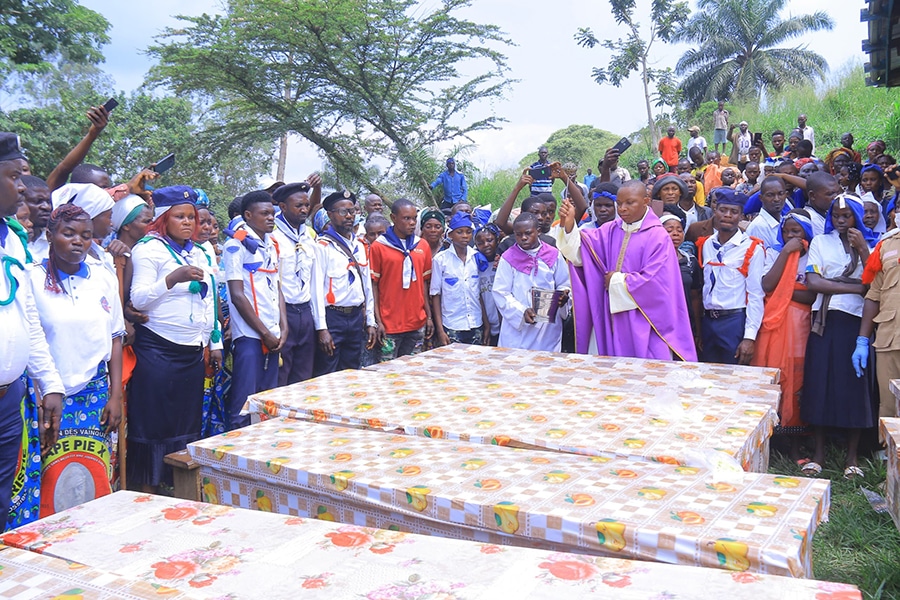
Father Aime Lokana Dhego sprinkles holy water on caskets during a funeral Mass in Komanda, in Congo's province of Ituri, July 28, 2025, for victims of a horrific attack on the Catholic church in Komanda, where at least 43 faithful were shot or killed with machetes during an overnight vigil in the church July 27. (OSV News photo/courtesy Father Justin Zanamuzi) EDITORS:best quality available.
At least 40 people have been killed and more than a dozen others injured after suspected Allied Democratic Forces (ADF) militants attacked a Catholic church gathering in Ituri, northern Democratic Republic of Congo (DRC).
The assault took place as worshippers were preparing for a “Eucharistic crusade” on Sunday, July 27. Local authorities said the death toll remained provisional as emergency workers continued to recover bodies and assess the full extent of the destruction.
Officials say the attack bears the hallmarks of the ADF, a Ugandan-origin armed group active in eastern DRC since the mid-1990s. Initially formed by opponents of Ugandan President Yoweri Museveni, the group has shifted operations to Congolese territory in recent years and has pledged allegiance to the Islamic State, escalating its attacks on civilian and military targets.
The massacre comes as the DRC struggles to stabilise its conflict-ridden east, even after recent de-escalation efforts in neighbouring Kivu, backed by agreements signed in Washington and Doha. The attack has heightened fears that escalating militant violence could push the country closer to chaos.
“Is this the ADF’s way of reminding the Congolese authorities that they will have to be reckoned with? Everything suggests so,” one local commentator observed, warning of a growing threat that stretches beyond regional insurgencies.
Religious leaders have renewed calls for an inclusive national dialogue to address the security crisis, urging President Félix Tshisekedi’s government to engage all stakeholders to prevent further destabilisation.
The violence comes amid mounting political tensions, as Tshisekedi faces domestic criticism over his reported ambition to seek a third term, adding to fears of unrest in a country already battered by multiple armed conflicts.
“The population has suffered so much martyrdom that they no longer know which rebel group to turn to,” one Ituri cleric lamented, urging the government to prioritise peace efforts before militant attacks and political unrest converge into a deeper national crisis.



